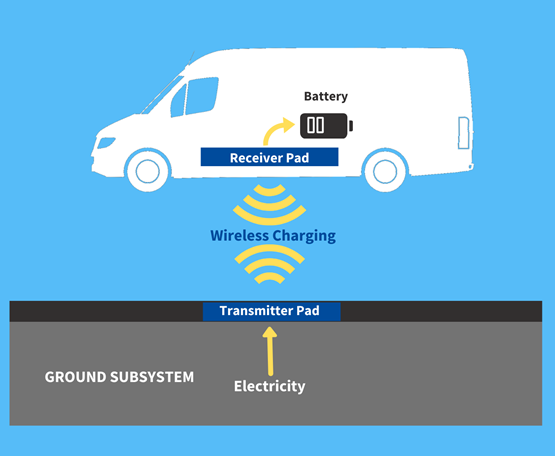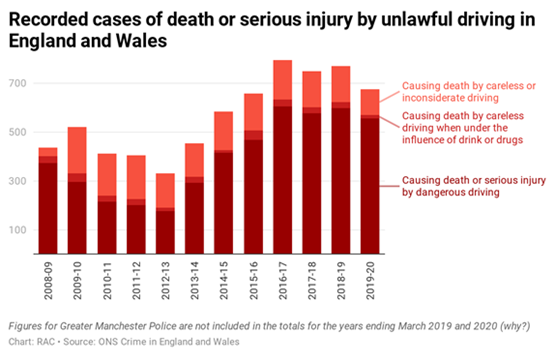UK To Start Trials On Wireless EV Charging In 2021 On Vans.
Monday, 16. November 2020
City of Edinburgh Council, Heriot-Watt University and Flexible Power Systems (FPS) have secured funding worth £1.6 million to investigate the benefits of wireless electric vehicle (EV) charging.
Wireless charging allows EVs to recharge while parked on charging pads instead of using cables that need to be manually plugged in by a driver.
In what is being claimed as the UK’s first wireless charging hub for light commercial vehicles (LCVs), devices will be installed at Heriot Watt University’s Edinburgh campus in early 2021 to service specially adapted vans from both City of Edinburgh Council and Heriot-Watt’s fleet.
The technology has already been proven for mass transit applications and will be supplied by specialist firm, Momentum Dynamics.
The project is being funded by the Office for Low-Emission Vehicles (OLEV) and delivered through Innovate UK.
A similar six-month trial of wireless charging technology for electric taxis in Nottingham was announced by the Government at the start of the year.
The Department for Transport (DfT) said that the £3.4m scheme could pave the way for a revolution in EV charging.
This latest project aims to accelerate the transition to EV in commercial vehicle fleets by reducing the cost of charging the vans.
The project team says that high-powered wireless electric vehicle charging is expected to have considerable benefits for commercial vehicle users, including: faster starts to charging sessions with no downtime for plugging in to improve vehicle use and create bigger benefits from opportunity charging sessions; no cables to cause trip hazards or require maintenance; and future proofing for the advent of autonomous vehicles (which will not have a driver to plug them in).
The project ultimately aims to apply wireless charging to shared logistics hubs where fulfilment functions can be combined with charging.
Wireless charging technology will be applied to improve vehicle turnaround times and staff productivity at the hubs enhancing cost savings, it says
FPS’ managing director, Michael Ayres explained: “Productivity drivers and longer journeys mean commercial vehicles may need to charge away from the depot or at high speeds during the day.
“Rapid and ultra-rapid chargers required for a fast turnaround make up less than 25% of publicly available chargers and can be difficult to access if they are in use or out of service.”
High-power rapid chargers can be expensive both in terms of the chargers themselves and the electricity network infrastructure required to support them, says Ayres.
Sharing the cost of the charger and the connection through a shared charging hub can mitigate a portion of these costs.
He continued: “The project is testing sharing of the charging hubs between logistics, retailer, local government, and university owned commercial vehicles.
“These charging hubs require high use to be economically viable. The project uses powerful wireless charging to shorten the length of time vehicles need to be in the charging hubs.
“At the same time, we are investigating adding basic fulfilment capabilities to improve the productivity of logistics vehicles visiting the hubs.”
Professor Phil Greening, a co-director of the Centre for Sustainable Road Freight, based at Heriot-Watt University added: “While highly utilised shared infrastructure and collaboration have great potential to reduce the costs of decarbonising road freight, there are complex scheduling and commercial trade-offs to be considered.
“The modelling tools and approaches developed in our Engineering and Physical Sciences Research Council (EPSRC) funded research at the Centre, combined with the collaboration we’ve undertaken with FPS over the last two years will both be key to untangling these challenges and making sure this potential is realised.”

The charging hub concept has the potential to contribute to decarbonising commercial vehicles in the City of Edinburgh.
City of Edinburgh Council’s transport and environment convener councillor, Lesley Macinnes, said: “We’re delighted to be working with Heriot-Watt University on this innovative project, helping to facilitate the use of electric vehicles across our fleet.
“We are committed to supporting the use of sustainable, low emission travel and continue to replace vehicles with cleaner models wherever possible.
“Our own Electric Vehicle Action Plan will result in a significant increase in charging points across the city which, alongside projects such as this, will help encourage the take-up of electric vehicles as a low carbon, environmentally-friendly transport choice.”
Scott Millar, fleet and workshops Manager for The City of Edinburgh Council, added: “We are already deploying electric vehicles across our fleet and we’re looking at ways we can drive adoption in the wider community.
“Providing charging infrastructure like shared hubs has the potential to play a key part of removing barriers to uptake for both the council and the community.
“We’re excited to take a leadership role here as a successful project in Edinburgh could present a model for other councils to use to reduce transport emissions in cities.” By Graham Hill thanks to Fleet News























